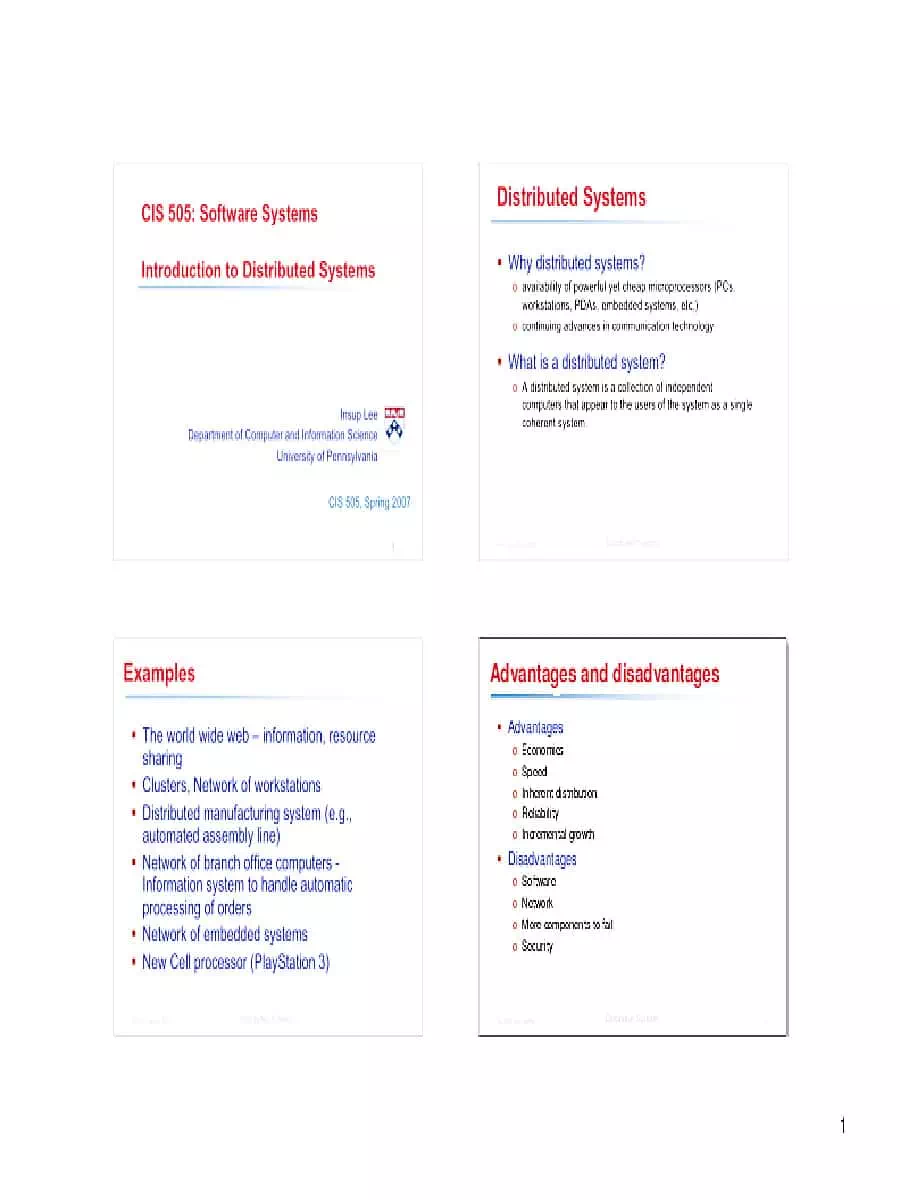Distributed Computing Advantages & Disadvantages
Distributed computing is a model in which components of a software system are shared among multiple computers to improve efficiency and performance and improve up time of a process. According to the narrowest of definitions, distributed computing is limited to programs with components shared among computers within a limited geographic area.
Distributed Computing Advantages
- Scalability and Modular Growth
- Fault Tolerance and Redundancy
- Low Latency
- Cost Effectiveness
- Efficiency
Distributed Computing Drawbacks
- Complexity
- Higher Initial Cost
- Security Concerns
Download complete information chapter or guide of Distributed Computing Advantages & drawbacks in pdf format or read online for free using link provided below.
